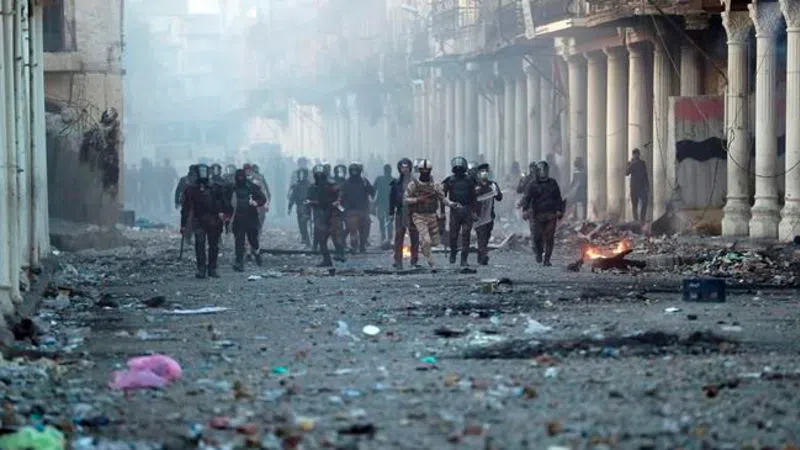
Iraqi officials: 2 protesters dead amid ongoing clashes
BAGHDAD — Iraqi security forces fired rubber bullets and tear gas to disperse crowds of protesters Saturday, killing two people in a third day of fierce clashes in central Baghdad, security and hospital officials said.
Two protesters were struck with rubber bullets and died instantly and over 20 others were wounded in the fighting on Rasheed Street, a famous avenue known for its old crumbling architecture and now littered with rubble from days of violence. Sixteen people have died and over 100 wounded in the renewed clashes. The officials spoke on condition of anonymity in line with regulations.
At least 342 protesters have died in Iraq’s massive protests, which started on Oct. 1 when thousands of Iraqis took to the streets to decry corruption and lack of services despite Iraq’s oil wealth.
Separately, Iraq’s Parliament failed to hold a session Saturday due to lack of a quorum. Lawmakers were supposed to read reform bills introduced to placate protesters. The next session was postponed to Monday.
